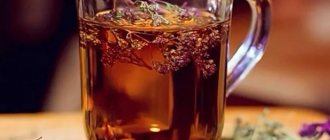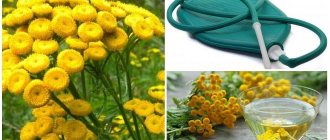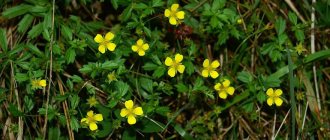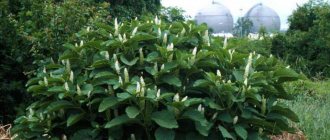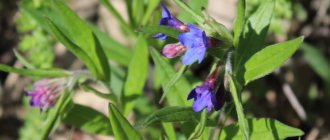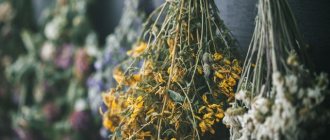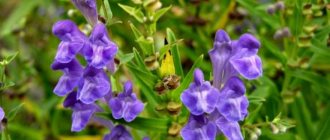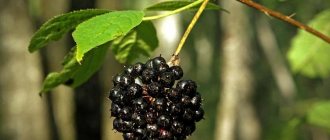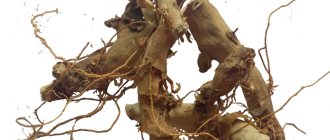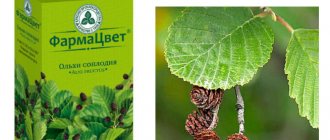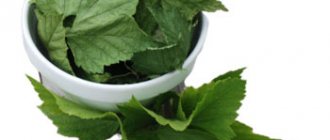Where does adonis grow?
This plant is quite common: it can often be seen in Europe, Ciscaucasia, and Siberia.
The plant prefers mainly steppe areas, but it can often be found on sun-drenched edges and outskirts of forests, groves, hills and mountain slopes, and open meadows.
But, currently this grass is considered rare and therefore needs protection.
The flowering period falls in the middle and end of spring (April-May), and ripening occurs in May-June.
It is also popularly called wallflower, due to the yellow color of its flowers, hare grass, hare poppy and hairy grass.
Photo of Adonis
Contraindications for Adonis
Like all medicinal herbs, adonis has a number of contraindications. Therefore, before starting therapy, you need to familiarize yourself with them.
Contraindications:
- angina pectoris;
- pregnancy;
- lactation;
- colitis;
- hypertension;
- gastritis;
- peptic ulcer;
- bradycardia;
- increased blood clotting;
- age up to three years.
Also, products based on this medicinal herb are contraindicated in case of individual intolerance to the component. If an allergy develops, use should be stopped completely.
Useful properties of Adonis
Almost all parts of the plant are used as raw materials for medicines, but the medicinal properties of the Adonis flower are most valued.
The composition of adonis includes such useful components as fisterin, glycosides, adonite alcohol, various trace elements, vitamins and tannins.
The list of medicinal properties of adonis is impressive. The plant is rich in cardiac glycosides such as imarin, adonivernoside and adonitoxin. It is they who have the main healing effect from the use of adonis.
The main medicinal properties of adonis are:
- soothing;
- diuretic;
- cardiotonic;
- vasodilation;
- relieving pain;
- anticonvulsant.
Adonis is used to treat the following diseases and conditions:
- insomnia – an alcohol tincture of the plant is used as a sleeping pill
- neuroses and asthenic syndrome - use alcohol infusion diluted with water
- fever and colds (flu, acute respiratory infections and other viral diseases) - it is good to use adonis tea
- measles – also adonis based tea
- whooping cough, pneumonia and bronchitis - a water infusion of the herb is required and tea with the plant can be used as an adjuvant
- kidney disease - use of an aqueous infusion of the plant or its alcohol tincture. Combine with other herbal ingredients such as bearberry and horsetail
- hypertension - a water infusion, with the main component adonis. The composition includes motherwort, hawthorn, cudweed, horsetail, birch leaves
- certain subtypes of hepatitis - use an aqueous infusion of Adonis herb
- heart disease with accompanying symptoms such as shortness of breath, swelling and dizziness - take a mixed herbal mixture of adonis and lily of the valley
- Vegetative-vascular dystonia - taking alcohol infusion of Adonis
- Epilepsy, psychosis - use of tea or water infusion of this plant.
How to use Adonis vernalis
Adonis vernatum is used in official and folk medicine for heart disease, insomnia and against seizures. Adonis vernatum is used both as an independent medicine and in combination with other medicinal herbs. Based on dry raw materials, soothing tea is brewed, infusions and decoctions are made.
Most often, Adonis is used to treat disorders of the cardiovascular system. Pharmacological drugs or infusions based on it calm the heart rate and eliminate swelling that is associated with impaired heart function.
The main indication for the use of Adonis vernalis is heart failure of degrees I and II, as well as cardiac neurosis.
The infusion of the plant has a beneficial effect on the central nervous system and has a sedative effect. It is often used to treat insomnia and nervous disorders, including hysteria. In combination with bromine, the drug is used to treat epilepsy.
Due to its anti-inflammatory effect, a decoction of spring Adonis is used to treat viral diseases - influenza, ARVI, scarlet fever. The product has a general strengthening effect.
Adonis vernalis relieves pain in muscles and joints. An infusion of the plant is used to treat arthritis and rheumatism. In addition, adonis is effective as an anticonvulsant.
An infusion based on the plant normalizes urination. It is used to treat kidney diseases, to relieve swelling and remove excess fluid.
Infusion for the heart
To regulate heart rate and for heart failure, Adonis infusion is used in combination with other cardiotonic ingredients.
Ingredients:
- lemon balm - 5 g;
- Adonis grass - 5 g;
- clover flowers - 5 g;
- motherwort - 5 g;
- white mistletoe - 5 g;
- water - 800 ml.
Mash the dry ingredients, pour boiling water and let it brew under the lid for 3-4 hours. Strain the cooled infusion through cheesecloth or a strainer.
Take a quarter glass after meals. The infusion regulates heart rate and helps with increased anxiety. The drug acts as a sedative.
For insomnia
Alcohol tincture of spring Adonis has a sedative effect and copes with insomnia.
Ingredients:
- Adonis grass - 20 gr.;
- vodka - 200 ml.
Place the Adonis herb in a glass jar, fill it with vodka, cover with a lid and put it in a cool, dark place. Leave for about 2 weeks, then strain.
Take Adonis alcohol tincture 15 drops three times a day, regardless of meals. The healing infusion calms the excited nervous system and normalizes sleep. Using the product for 3-4 days completely relieves insomnia. After this, the drug should be stopped.
Anti-cramp
Adonis vernalis has an anticonvulsant effect, including after taking picrotoxin and using narcotic substances.
Ingredients:
- Adonis grass - 12 g;
- water - 350 ml.
Pour dry adonis herb into a thermos, pour boiling water over it and leave for 2-3 hours. Strain the finished product before use.
Take 1 tablespoon of infusion 2-3 times a day after meals. The infusion normalizes muscle activity and eliminates cramps.
Adonis spring decoction
Adonis decoction is often used for hyperthyroidism (increased levels of thyroid hormones). The product is prepared on the basis of Adonis vernalis in combination with other medicinal herbs. The decoction is prepared in a water bath and only over low heat so as not to destroy the beneficial substances.
Ingredients:
- peppermint - 5 gr.;
- Adonis grass - 7 g;
- cuckoo adonis - 5 g;
- oregano - 7 gr.;
- chamomile flowers - 5 g;
- water - 1 liter.
Grind the dry ingredients with a rolling pin, add water and place in a water bath. Stir the herbs over low heat for 10 minutes. Cool and strain the broth. Store in the refrigerator for no more than 2 days.
Take half a glass three times a day after each meal. The decoction reduces the level of thyroid hormones and slows down metabolic processes in the body.
Adonis vernacular tincture as a sedative
Infusion of Adonis vernacular has a beneficial effect on the central nervous system and has a calming effect. Infusions are prepared with both water and alcohol (vodka). The use of infusions should be strictly according to the instructions and under the supervision of a specialist.
Ingredients:
- St. John's wort - 5 g;
- lemon balm - 5 g;
- fireweed - 3 gr.;
- Adonis grass - 3 gr.;
- rose hips - 5 g;
- motherwort - 5 g;
- water - 500 ml.
Mash the dry ingredients with a rolling pin, grind the fruits in a coffee grinder, then combine with herbs. Pour boiling water, cover with a lid and let steep for at least 3 hours. Strain the cooled infusion.
Drink 2 tablespoons after each meal, no more than 4 times a day. The infusion calms the nervous system and relieves increased anxiety.
Application in traditional medicine
In the field of scientific medicine, this adonis plant appeared relatively recently. It was first used as a medicine only in 1880.
Since then, Adonis flower has been used by many pharmaceutical companies to create drugs. The most famous were:
- Bekhterev's mixture, which is recommended as a sedative;
- Adonis bromine, which is often recommended for heart problems;
- Adoniside is a ready-made herbal infusion used to normalize the circulatory system;
- Cardiovalen – recommended for use in the treatment of neuroses and cardiovascular diseases.
Adonis pharmaceutical
Preparations created on the basis of this plant have good diuretic, sedative and cardiotonic properties.
They are recommended for the treatment of diseases such as chronic circulatory failure.
Both in mild and more severe forms, as well as for problems with blood vessels and neuroses.
Medicinal properties of the Adonis vernatum plant
The medicinal properties of the plant are recognized not only by folk medicine, but also by traditional medicine, so it is often used for the production of various medications (Adonizide, Adonis-bromine), infusions, decoctions, and mixtures.
Adonis vernalis has a general strengthening and immunomodulatory effect, increases the body's resistance to various infections.
The plant contains a glycoside called cymarin. It has a beneficial effect on the nervous system and has a pronounced sedative effect. Infusion of Adonis vernacular helps with insomnia.
Adonis helps get rid of edema, as it has an active diuretic effect. The plant can be found in bud collections.
Most often, Adonis vernalis is used as a remedy for the treatment of cardiovascular diseases. Cardiotonic glycosides, which are part of the plant, calm the heart rate and are indispensable for heart failure. Preparations based on Adonis eliminate shortness of breath.
The glycosides that make up the plant are considered poisonous, but they do not accumulate in the body and are less active than, for example, in foxglove.
Use in folk medicine
This plant is quite popular among folk healers.
It is sometimes called the savior of the heart, since one of the main causes is cardiovascular disease.
The aerial part is used as a raw material for the preparation of medicines.
Since the Adonis plant is now quite rare, it is forbidden to uproot it.
The collected raw materials must be dried quickly. The best way to do this is to use ovens or dryers.
If the weather is warm and dry enough, then you can dry it under a canopy or in a well-ventilated attic.
Please note that direct sunlight is harmful during the drying process.
Due to their influence, Adonis loses its beneficial properties. Dried herbs should be stored in a well-ventilated, dry place, but not more than 12 months.
Traditional healers use infusions and decoctions of Adonis.
They were used for liver and stomach ailments, infectious diseases, swelling, headaches, dropsy, and jaundice.
SPRING DONDONIS (Adonis spring, Montenegrin,starodubka) - ADONIS VERNALIS L.
Sem. Ranunculaceae - Ranunculaceae
DESCRIPTION. A perennial herbaceous plant 20-40 (50) cm high, with a short multi-headed rhizome and numerous cord-like roots. The stems are numerous, weakly branched, with appressed branches, densely leafy, at the base covered only with sparse brown scale-like lower leaves. Stem leaves are alternate, sessile, rounded in outline, palmately divided into 5 lobes, of which 2 lower lobes are shorter, and the rest are almost the same length. The lower lobes of the plant are pinnately dissected, and the upper lobes are twice pinnately dissected. The lobules are narrow, linear, entire, subulate-pointed at the apex. The flowers at the ends of the shoots are single, large, with golden-yellow, oblong, jagged petals. Calyx of 5-8 sepals, stamens and pistils numerous. The fruit is a composite, consisting of 30-40 nuts, the nuts are gray-greenish, obovate, wrinkled, with a hook-shaped nose bent downwards.
Blooms in April-May; the fruits ripen in May and June.
RAW MATERIALS. The medicinal raw material is the spring adonis herb. Dried grass consists of leafy light green stems 10-35 cm long and golden yellow flowers. The finished raw material should contain no more than 13% moisture, browned parts no more than 3%, crumbled leaves no more than 5%, organic impurities no more than 2 %, mineral impurity no more than 0.5%. The raw materials are classified as potent drugs.
DISTRIBUTION AND PROCESSING. Spring adonis is confined to the steppe and forest-steppe zones. Grows mainly on chernozem soils. Spring adonis grass should be collected during the period of flowering and the beginning of fruiting of the plant, before the fruits begin to fall off. It is cut at a level of 5-10 cm from the ground, slightly above the scale-like leaves, trying not to damage the renewal buds. The collected herbs are dried as quickly as possible to avoid the breakdown of glycosides. Can be dried outdoors in the shade, in attics under an iron or tiled roof.
Long-term harvesting of adonis grass on the same tracts leads to the depletion of its thickets. Even greater destruction occurs as a result of plowing and intensive grazing.
CHEMICAL COMPOSITION. The aerial part of spring adonis contains cardiac glycosides belonging to the cardenolide group. 25 cardenolides were found in the grass, of which 10 were isolated in pure form: cymarin, adonitoxin and its isomer, acetyladonitoxin, k-strophanthin, B-strophanthindin, strophadogenin, 3-acetylstrophadogenin, adonitoxol, vernadigin.
In addition to cardiac glycosides, adonis herb contains flavonoids; Apigenin C-glucoside (vitexin) was isolated from flowers. Seeds and roots contain cardiac glycosides, the nature of which has not been established; In addition, the coumarin vernadine was found in the roots.
APPLICATION. Adonis preparations have a cardiotonic effect and are widely used for the treatment of cardiovascular diseases. The main indications for their use are chronic cardiac failure and functional neuroses. In terms of strength and duration of action, spring adonis preparations are inferior to foxglove and strophanthus, but unlike foxglove, they do not have cumulative properties.
In folk medicine, the spring adonis herb is used as a hemostatic agent for uterine bleeding. A decoction prepared from the herb is used to wash wounds, as well as for compresses (for scabies).
RECIPES
Decoction
It is prepared as follows: pour 20 g of spring adonis herb with a glass of boiling water. Take 1 tbsp. spoon 3 times a day. For external use, the decoction is prepared in the same way, with the only difference that 2 times less herbs are required. Alcohol tincture of the herb is taken 20-25 drops 3 times a day.
A strong strengthening remedy that enhances diuresis and increases vitality is recommended for renal dropsy in the form of an infusion:
1 tbsp. spoon of herb per 2 cups of boiling water. Dose 1 tbsp. spoon, but not more often than an hour later (this is the maximum).
Adonis contraindications
It is important to remember that any medicine can bring both benefit and harm to the body.
Also, you should remember that adonis is a poisonous plant, so dosages must be strictly observed.
- Pregnant women should strictly not take this plant or preparations based on it, as it can lead to miscarriage.
- It is also contraindicated for ulcers, gastritis, hypertension and angina.
- It is also not recommended for use in children under 3 years of age.
- An overdose of products that contain adonis herb can lead to gastrointestinal disorders, increased/slow heart rate, drowsiness, convulsions, and dilated pupils.
Prohibition for drugs based on adonis for the following diseases:
- gastritis
- colitis
- open ulcer
- increased level of blood clotting
- arrhythmia
- cardiac conduction disorders
Adonis harm
Adonis herb should be used with caution for medicinal purposes. This is due to the presence of potent components in its composition. Exceeding the dosage may cause intoxication of the body. It is recommended to discuss the use of Adonis for medicinal purposes with your doctor in advance.
Important! Uncontrolled use of products based on spring adonis, as well as ignoring the permissible norm, can be harmful to health.
In case of overdose, the following side effects may occur:
- limb spasms;
- arrhythmia;
- increased fatigue;
- drowsiness;
- digestive system disorders.
We recommend reading: Where does the cornflower flower grow and what does it look like: useful properties, reviews
If there are alarming signs, it is recommended to rinse the stomach, increase water consumption and drink activated carbon at the rate of one tablet per 10 kg of body weight. After this, you should remain in bed.
Important! If you are intoxicated with Adonis herb, taking drugs that cause vomiting is strictly prohibited.
Adonis Recipes
| Alcohol tincture for insomnia | To 20 grams of crushed herb you need to add 10 tablespoons of vodka or 40% alcohol. The infusion should be infused for at least 1.5-2 weeks in a dark place. After which you can strain and use it as a sedative and hypnotic. The recommended dose is 15-20 drops at night (as a sleeping pill) or three times a day (as a sedative). |
| Infusion for chronic heart failure | To prepare this remedy, you need to pour 40 g of crushed herbs into 250 ml of boiling water and leave for half an hour. After this, the infusion needs to be strained. This remedy is recommended for use for heart neuroses and chronic heart failure, 2 teaspoons three times a day. |
| Infusion of adonis and other herbs for the treatment of heart pathologies | To prepare such an infusion, you need to prepare a collection of herbs:
Which needs to be poured with boiling water and left for at least 3 hours. In preparation, you need to follow the proportion: for 10 g of collection you need to add 350 ml of boiling water. This proportion is designed for 4 doses. |
| Infusion for the treatment of diseases of the nervous system | Proportion: 16 g of collection and 350 ml of boiling water. For collection take:
The collection is poured with boiling water and infused for three hours, after which it is filtered. A portion of the infusion is designed for 4 doses. |
| Adonis decoction | It is not difficult to prepare a healing decoction. To do this, you need 1 tablespoon of crushed adonis, it is placed in a container (preferably enameled), filled with 0.25 liters of boiling water, then covered with a lid. After half an hour, you need to strain the liquid, it is ready for use. Drink the decoction cool , as a rule, 3 times a day, 1 tablespoon. In rare cases, up to 6 times a day is allowed. |
| Adonis tea | To prepare this remedy, you need to pour 1 tablespoon of dried plant material with 400 grams of boiling water, letting it brew until it cools. You should drink 1 tablespoon of tea once an hour. If you wish, you can sweeten the drink with honey. |
Methods of application
In folk medicine, decoctions, infusions and alcohol tinctures are prepared from adonis for internal use. For medicinal purposes, you can prepare Adonis vernacular herb according to the description given above yourself or buy ready-made raw materials at a pharmacy.
Alcohol tincture for heart problems
Finely chopped Adonis herb is poured to the top into a half-liter jar, filled with alcohol with an ethanol concentration of 56% and closed with a lid. The resulting mixture is infused in a warm, dark place for 12 days, stirring daily. Take 8 drops an hour before meals three times a day. The product is suitable for long-term use.
Decoction for heart palpitations
Pour 250 ml of water into a small saucepan and place it on low heat. At the moment of boiling, add 4 g of Adonis herb and boil for no more than three minutes, after which cover the pan with a lid and take it to a warm place for 20 minutes to infuse. Then filter and take 15 ml three times a day for several days.
Infusion for pneumonia and tuberculosis
Dry crushed Adonis herb in the amount of 1 - 2 teaspoons is placed in a glass and filled to the top with boiling water. Leave until it cools to room temperature, filter and take 1 tbsp. l. three times a day.
Infusion for muscle and joint pain
Dry adonis herb in the amount of 1 tbsp. l. pour 200 ml of boiling water and leave for an hour. Then filter and consume the resulting solution one tablespoon at a time three times a day.
Vodka tincture for insomnia
The crushed grass (2 tbsp.) is poured with 300 g of vodka and left in a dark place for 10 – 15 days. Use as a sedative, 20 drops three times a day.
Remedy for neuroses
A herbal mixture is prepared from 1 part adonis herb, 3 parts nettle, 2 parts valerian, 4 parts lemon balm. Add a glass of boiling water to 5 g of the resulting mixture, leave for 10 minutes, filter and take ¼ glass twice a day.
Rules for using the Adonis plant
Due to its medicinal properties, Adonis vernalis is widely used in traditional medicine. An extract based on it acts as an active component of Bekhterev's mixture, which has a sedative effect. It is recommended to use the drug twice a day, 1 tbsp. l.
Bekhterev's mixture is prepared upon presentation of a doctor's prescription
Also based on this medicinal herb, tincture and tablets “Adonis-Bromine” are produced. In the first case, it is recommended to take 15-20 drops once a day, and in the second - 2-3 times a day, one tablet.
Important! When treating with Adonis, self-medication is unacceptable, since only an experienced specialist will be able to assess the health risk in each specific case.
